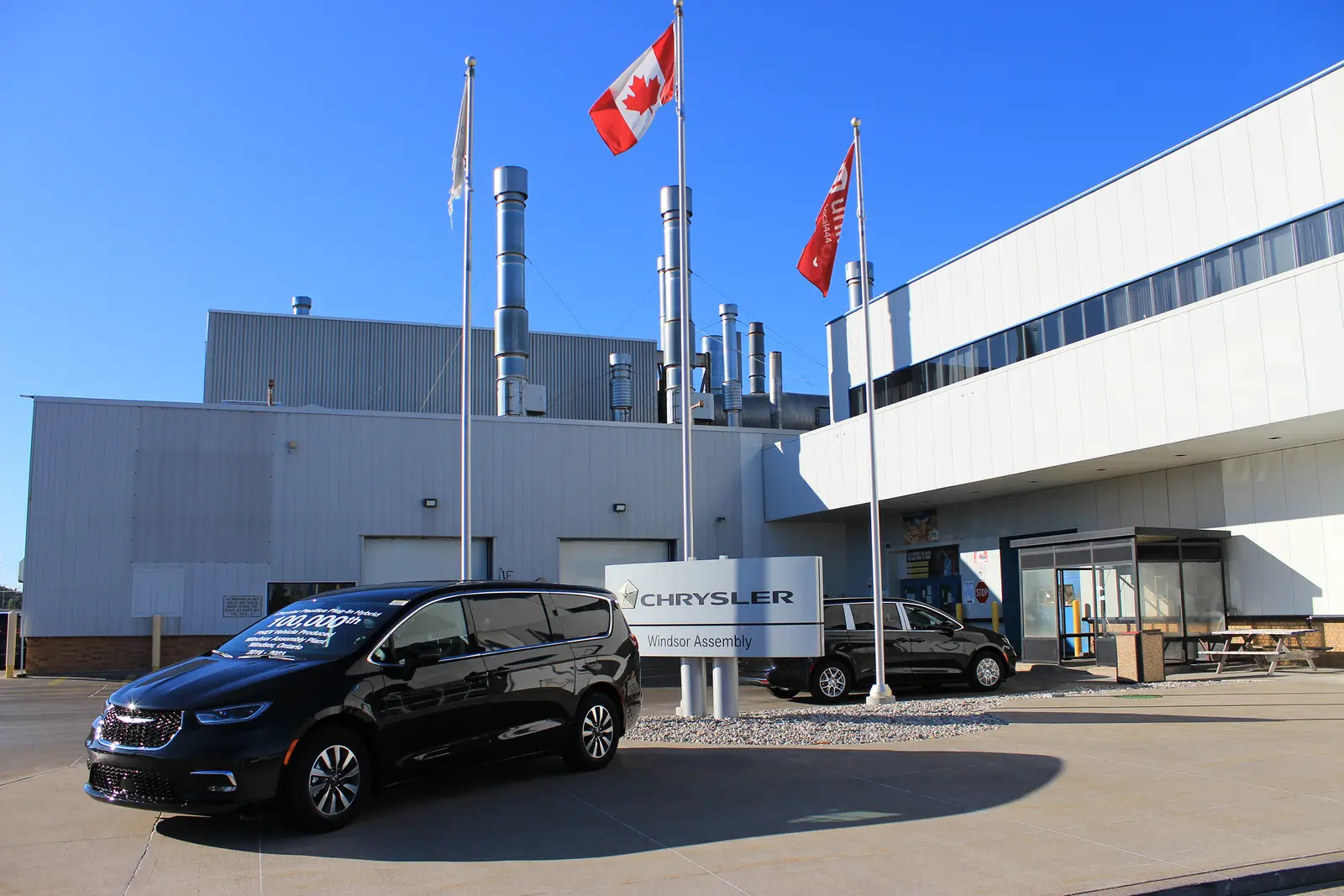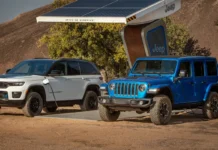Stellantis announced it would pause production in Canada and Mexico, while it’s also temporarily laying off some U.S. workers.
New, sweeping 25% automotive tariffs went into effect within the past 24 hours, and Stellantis already announced it would lay off some 900 U.S. workers at five different facilities, while idling production at one Mexican and Canadian assembly plant. The move is being done as, according to chief operating officer for the Americas Antonio Filosa, the company is “continuing to assess the medium- and long-term effects of these tariffs on our operations (per a Reuters report)”.
The five American plants impacted include several Midwestern plants, including the Warren Stamping and Sterling Stamping Plants in Michigan, as well as the Indiana Transmission Plant, Kokomo Transmission Plant and Kokomo Casting Plant in Kokomo, Indiana. In addition to those layoffs, Stellantis announced it would pause operations at its Windsor, Ontario plant, which employs 4,500 people to build the Chrysler Pacifica and Voyager as well as the new electric Dodge Charger Daytona, for two weeks. The Toluca plant in Mexico, which employs 2,400 and builds the Jeep Compass and Wagoneer S, will go offline for the rest of April.
“These are actions we do not take lightly,” Filosa said in a memo to North American workers, “but they are necessary given the current market dynamics.” He goes on to say that the company is “engaged” with stakeholders throughout North America to “manage and adapt to these changes”. In the short-term, however, widespread layoffs are in force as Stellantis reported a 12% drop in sales volume for the first quarter of 2025 versus last year.
The UAW praises tariff action while criticizing Stellantis’ U.S. layoffs
On March 26, the United Auto Workers (UAW) union praised the then-forthcoming automotive tariffs from the Trump administration, saying it marks “the beginning of the end of the thirty-plus year ‘free trade’ disaster.” UAW President Shawn Fain said, “Ending the race to the bottom in the auto industry starts with fixing our broken trade deals, and the Trump administration has made history with today’s actions.” That statement is consistent with a February statement supporting aggressive tariff policy as well as a renegotiation of the US-Mexico-Canada Agreement (USMCA), which Donald Trump signed into law in 2021 — even as the union criticized in the same statement: “Trump’s anti-worker policy at home, including dissolving collective bargaining agreements and getting the National Labor Relations Board, [that] leaves American workers facing worsening wages and working conditions even while the administration takes aggressive tariff action”.
Fain further elaborated in the UAW’s statement a month later that, “The UAW has been clear: we will work with any politician, regardless of party, who is willing to reverse decades of working-class people going backwards in the most profitable times in our nation’s history.” That also tracks, since back in August 2024, Fain endorsed then-Vice President Kamala Harris for President of the United States, calling Donald Trump “a scab and a lapdog for the billionaires,” while saying Harris stands with the working people and walked the picket line to support the UAW’s interests.
Fast forward into a new year and a new industry landscape, and Fain criticized Stellantis, in turn, for its decision this week to lay off American workers, saying that “Stellantis continues to play games with workers’ lives. As we’ve shown time and again, they’ve got the money, the capacity, the product, and the workforce to employ thousands more UAW members in Michigan, Indiana, and beyond. These layoffs are a completely unnecessary choice that the company is making.”
At time of writing, Stellantis has not responded to the UAW’s latest critical statement, nor has the White House commented on the layoffs enacted as the administration’s latest round of tariffs go into effect.

























